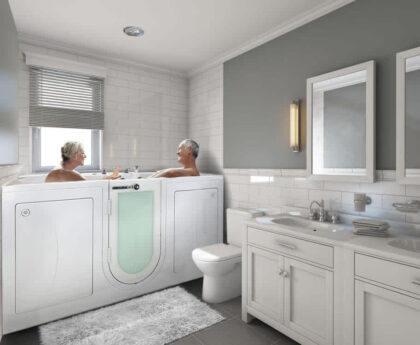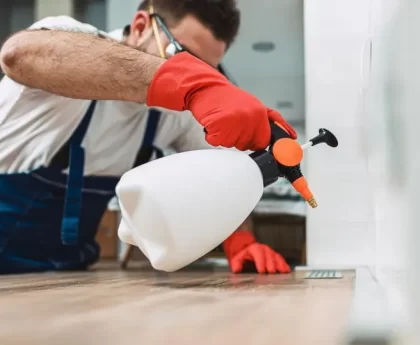In today’s fast-paced world, stress has become an all too common companion in our daily lives. However, the home should be a sanctuary, a place where you can escape from the chaos of the outside world and find solace. If you’re looking to create a stress-free haven within your own four walls, here are five ways to reduce stress at home:
1.Create a Calming Environment to Reduce Stress at Home:
One of the foundational steps to reduce stress at home is to create a calming environment. A cluttered and chaotic space can lead to a cluttered and chaotic mind. Start by decluttering and organizing your living spaces. Go through each room, one at a time, and assess what can be removed or better organized. A clutter-free home not only looks appealing but can also have a significant impact on your mental state. When you walk into a tidy space, you’re more likely to feel relaxed and in control.
Choosing the right colors for your home can also make a big difference. Consider using soothing colors like soft blues, greens, or earth tones on your walls and decor. These colors have a calming effect and can help reduce stress levels. Avoid overly stimulating colors like bright red or neon yellow in spaces where you want to relax.
Invest in comfortable and cozy furnishings. A comfortable environment can promote relaxation and reduce stress. Choose plush sofas and chairs with soft, tactile fabrics. Add throw pillows and blankets to create a cozy atmosphere. Consider incorporating natural materials like wood and stone into your decor to create a sense of connection with the natural world.
2. Establish a Relaxation Corner:
Having a designated relaxation space within your home can provide you with a refuge from the demands of everyday life. This area should be dedicated solely to relaxation, free from distractions and the pressures of daily tasks.
Start by selecting an area in your home where you feel most at ease. It could be a corner in your living room, a small section of your bedroom, or even a space on your balcony or patio. The key is to choose a spot where you can retreat to whenever you need a moment of respite.
Once you’ve chosen your relaxation corner, decorate it in a way that promotes tranquility and comfort. Consider adding soft cushions, calming artwork, or soothing plants. A comfortable chair or cushioned floor seating can provide you with a cozy spot to unwind. Adding a small table or shelf for books, candles, or calming essential oils can enhance the ambiance.
3. Practice Mindfulness and Meditation:
Mindfulness and meditation are powerful tools for reducing stress and promoting relaxation. By dedicating a few minutes each day to these practices, you can significantly improve your mental well-being.
Choose a quiet spot in your home where you won’t be disturbed during your mindfulness or meditation sessions. This could be your relaxation corner or any area where you feel comfortable. Turn off or silence your electronic devices to eliminate potential distractions.
To begin, find a comfortable seated or lying position. Close your eyes and take a few deep breaths to center yourself. Focus on your breath as it enters and exits your body. Pay attention to the rise and fall of your chest or the sensation of your breath at your nostrils. If your mind starts to wander, gently bring your attention back to your breath without judgment.
Mindfulness involves being fully present in the moment and observing your thoughts and feelings without attachment. You can also practice guided meditation using apps or online resources. Many guided meditations are specifically designed to reduce stress and promote relaxation.
4. Embrace Natural Light and Greenery:
The presence of natural light and greenery in your home can have a profound impact on your stress levels and overall well-being.
Natural light has a positive effect on mood and can help regulate your sleep-wake cycle. Open your curtains during the day to let the sunshine in. If your home has limited natural light, consider using mirrors strategically to reflect light into darker areas.
Incorporating houseplants into your decor not only enhances the aesthetic appeal of your home but also contributes to a sense of well-being. Studies have shown that indoor plants can improve air quality, reduce stress, and boost mood. Consider placing potted plants or succulents in various rooms of your home. Some low-maintenance options include snake plants, pothos, and peace lilies.
5. Establish Healthy Routines to Reduce Stress at Home:
Healthy routines are essential for maintaining both physical and mental well-being. By incorporating regular routines into your daily life, you can create a sense of structure and reduce stress.
Start by establishing a consistent sleep schedule. Aim for seven to nine hours of quality sleep each night. A well-rested mind and body are better equipped to handle stress. Create a bedtime routine that helps signal to your body that it’s time to wind down. This might include reading a book, taking a warm bath, or practicing relaxation techniques. Some also say that having a good home security system you can trust allows you to sleep better with more peace of mind.
Incorporate regular exercise into your daily routine. Physical activity is a powerful stress reliever, as it releases endorphins, which are natural mood lifters. Whether it’s a brisk walk, yoga, or a home workout routine, find a form of exercise that you enjoy and can commit to regularly.
Create a daily schedule that includes time for self-care. This could involve practicing mindfulness, journaling, or engaging in hobbies you’re passionate about. Allocate time for healthy meals and mindful eating. Avoid skipping meals, as hunger can exacerbate stress.
Limit screen time, especially before bedtime. Excessive screen exposure, particularly to news or social media, can disrupt sleep patterns and contribute to stress and anxiety. Set boundaries for screen use and consider implementing a digital detox period each day.
Incorporate relaxation techniques like deep breathing exercises or progressive muscle relaxation into your daily routine. These practices can help you manage stress as it arises.
By following these five strategies to reduce stress at home, you can transform your living space into a tranquil sanctuary where you can unwind, rejuvenate, and enjoy the benefits of a more relaxed and stress-free lifestyle.





